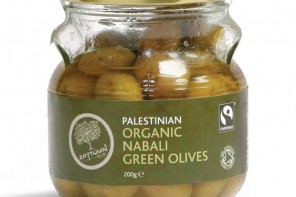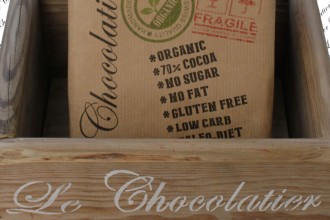A series on organic vegetable growing – August: Natural Pest Control
A gardener’s worst nightmare is entering the garden and seeing the beloved veggie patch destroyed overnight by an army of invisible pests. If this has happened to you, you’ve probably found it immensely frustrating and somewhat discouraging. Here are some natural, organic and integrated pest management tips.
Short Term Solutions
A short term solution is simply to make your own organic pesticide spray. This is easy, cheap, and effective against aphids and a variety of other insects. While commercially made organic pesticides are available at garden centres I like to make my own as there is immense satisfaction in being so industrious and you can even use some of your vegetables as the ingredients.
Mix together 5L of warm water with the following chopped veg: two onions, four chillies, and four cloves of garlic. Add 50ml of liquid paraffin, which is readily available at most pharmacies. Let this stew for a couple of days and then strain into a spray bottle. After that, grate some bar soap and create a lather with your mixture. Spray directly onto plants every seven to ten days or as needed.
For snails and slugs, there are a couple of very simple natural solutions. To catch them, all you need to do is place a small beaker in the ground and fill it half way with beer. The snails will be drawn to this and will be unable to get out of the beaker. Mulch is a fantastic organic snail solution. Place a thick layer of crunchy mulch such as crushed egg or sea shells. It is too sharp for them to crawl on.
Long Term Solutions
Far more effective and sustainable than the short term remedies are long term solutions. An intelligently designed garden is naturally pest repellent. If you design your garden wisely and plant beneficial species, your garden will become pest free without the need for any pesticides. It requires careful planning as well as patience for the garden to mature.
An intelligent design begins with a diversity of shapes and structures in the garden. This will confuse the pests. Grow plants up a wall or fence, build a trellis, or use poles. Build raised beds and have plant pots or other containers. Build in circles, squares and other shapes.
Next, plant naturally pest-repellent plants around the edges of the garden. Edible plants include the onion (allium) family – grand onions, spring onions, chives, garlic, shallots, and leeks. Non-vegetable plants can be placed around the edge of your garden too. These include lavender, nasturtium, geranium, and marigold. Wormwood is another useful plant. Plant this at the edge of your garden, well away from any other crops as it will also deter their healthy growth!
You can also plant ‘distractions‘ away from the vegetable area. Ask your nursery for pest-attracting plants and put these in a separate section of the garden. You can also build structures that attract pests. One example is to cover a piece of bright yellow plastic with Vaseline. The pests will be attracted to the colour and then get stuck in the Vaseline.
Another intelligent organic solution is to encourage pest-predators. A small pond or water feature will attract bug-eating frogs and toads. Some flowering plants attract birds that will eat aphids and other pests. And if you have chickens or ducks, allow them into the garden once a month to eat all the snails and slugs.
Lastly, your garden will be pest repellent with companion planting. I will cover this in depth next month. The basis of this approach to gardening is that some plants are friends and others are enemies. Plant the friends together and you can expect healthier and stronger plants. One example is parsley. It will make your strawberries gush with delicious juice, but it will inhibit the growth of your lettuces.
August planting |
|
| Western and Southern Cape | Beetroot, cabbage, carrot, eggplant, leek, lettuce, pepper, potato, radish, squash, sweetcorn, and turnip. |
| Inland | Beetroot, cabbage, carrot, eggplant, leek, lettuce, and peas, pepper, tomato, turnip. |
| Coastal KZN | Bush & pole beans, cabbage, carrot, cucumber, eggplant, lettuce, melon, peppers, radish, squash, and spinach. |
I would love to hear what organic methods you use in your garden. You can type them into the box below.
Sam Adams runs Living Green, an eco-consultancy and organic food garden company in Cape Town. He can be contacted on 074-1715566 or info@startlivinggreen.co.za or www.startlivinggreen.co.za
The liveeco team







